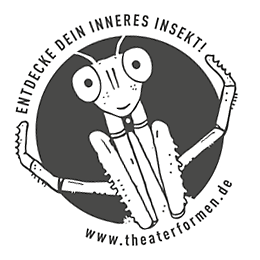Tristesses





A theatre thriller about personal and political desperation
Against the background of growing nationalism in Europe, Belgian director, actress and author Anne-Cécile Vandalem tells the story of the rise of a fictional extremist right-wing party: the eight remaining residents of the Danish island of Tristesses are desperately fighting for community in their greenish-grey houses and their economic plight. Impeded by familial and political intrigues, victims and accomplices of the rise of the right, they become part of a perfidious and brutal game for power: murder becomes conceivable as a political strategy.
With parallels to fascist movements from the past and the present, in Tristesses Vandalem investigates the social conditions and limits of the individual and collective capacity to act. Film projections allow us to peer inside the houses as well as the characters, while the dead make themselves heard in the stage music.
Conceived . Written . Directed by Anne-Cécile Vandalem Music director Vincent Cahay . Pierre Kissling
With Vincent Cahay . Anne-Pascale Clairembourg . Epona Guillaume . Séléné Guillaume . Pierre Kissling . Vincent Lécuyer . Bernard Marbaix . Zoé Kovacs . Jean-Benoit Ugeux . Anne-Cécile Vandalem . Françoise Vanhecke Stage design Ruimtevaarders
Sound design Jean-Pierre Urbano Light design Enrico Bagnoli
Costume design Laurence Hermant
Video design Arié van Egmond . Federico D’Ambrosio
Camera Federico d’Ambrosio . Lou Vernin
Technical director Damien Arrii Assistant Director Sarah Seignobosc
Props Fabienne Müller
Make-up Sophie Carlier
Assistant Dramaturg Sébastien Monfè
Hair styling Gaétan d'Agostino
Soprano . Instrumental . Vocal Coaching Françoise Vanhecke Lighting Kevin Sage Sound Antoine Bourgain Video Tonin Bruneton Assistant Producer Marie Charrieau Executive Producer Audrey Brooking
Produced by Das Fräulein (Kompanie)
Coproduced by Théâtre de Liège . Le Volcan – Scène Nationale du Havre . Théâtre National – Bruxelles . Théâtre de Namur – Centre dramatique . Le Manège . Mons . Bonlieu Scène Nationale Annecy . Maison de la Culture d’Amiens – Centre européen de création et de production . Les Théâtres de Marseille – Aix en Provence
A Prospero coproduction with the Théâtre National de Bretagne . Théâtre de Liège . Schaubühne am Lehniner Platz . Göteborgs Stadsteatern . Théâtre National de Croatie – World Theatre Festival Zagreb . Festival d’Athènes et d’Epidaure . Emilia Romagna Teatro Fondazione With funding from la Fédération Wallonie-Bruxelles . Service Théâtre . Wallonie-Bruxelles International
Also supported by l’ESACT – l’Ecole Supérieure d’Acteurs . LA HALTE Liège
Schauspielhaus
ConcessionsAdvance booking 12/9 Euro . Evening box office 13/10 Euro
Introduction09.06. 18:30 Uhr . Theatermuseum
Duration1h35 . no interval
LanguageFrench with German and English surtitles
Buy tickets online



